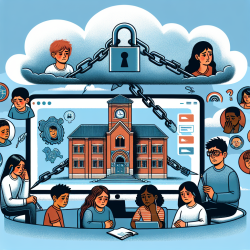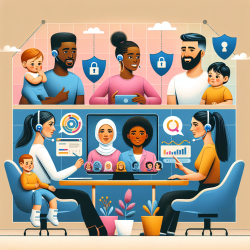The COVID-19 pandemic has brought unprecedented challenges, particularly for children and adolescents. School closures have significantly impacted their mental health, as highlighted in the research article "Mental health effects of school closures during COVID-19" published in The Lancet Child & Adolescent Health. As practitioners, it is essential to leverage these findings to improve our approaches and ensure better outcomes for young individuals.
Here are key takeaways from the research and actionable steps to implement:
1. Understand the Impact
The research indicates that school routines are crucial coping mechanisms for children with mental health issues. The absence of these routines can exacerbate symptoms of depression and anxiety. Children with special education needs, such as those with autism spectrum disorder, are particularly vulnerable to disruptions in their daily schedules.
2. Implement Structured Routines
Encourage parents to create and maintain a structured daily routine for their children. This can help reduce anxiety and provide a sense of normalcy. A consistent schedule that includes time for online learning, physical activities, and leisure can be beneficial.
3. Utilize Online Therapy
With face-to-face services suspended, online therapy becomes a critical tool. Platforms like TinyEYE offer speech therapy and social skills training sessions online, ensuring that children continue to receive the support they need. Practitioners should familiarize themselves with these platforms to effectively guide families.
4. Foster Social Connections
Social isolation can be detrimental to mental health. Encourage virtual social interactions through video calls, online group activities, and peer support groups. These interactions can help mitigate feelings of loneliness and provide emotional support.
5. Monitor and Support Mental Health
Regularly check in with children and adolescents to assess their mental health status. Be vigilant for signs of distress and provide appropriate interventions. Collaborate with other professionals, such as psychologists and counselors, to offer comprehensive support.
6. Encourage Further Research
The long-term mental health effects of the pandemic on children and adolescents remain largely unknown. Encourage ongoing research to fill this gap and develop evidence-based strategies for future interventions. Practitioners can contribute by participating in studies and sharing their observations.
By integrating these strategies into your practice, you can help mitigate the adverse effects of school closures on children's mental health. For a deeper understanding of the research, please follow this link: Mental health effects of school closures during COVID-19.










